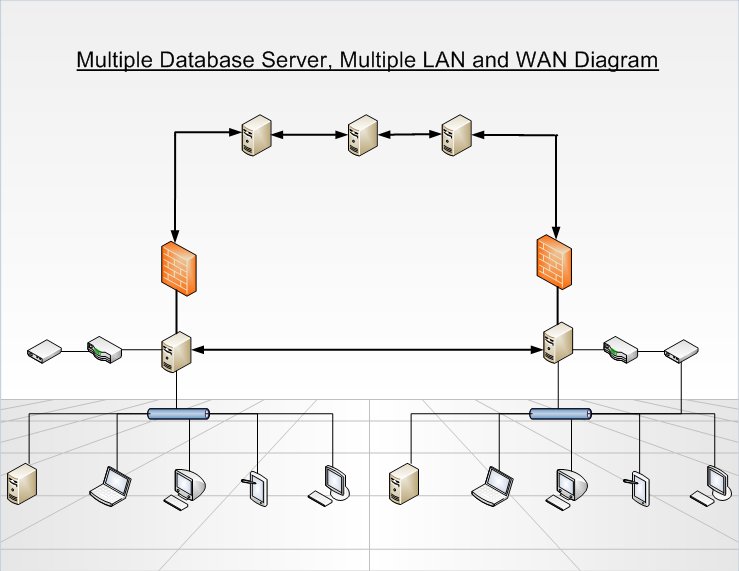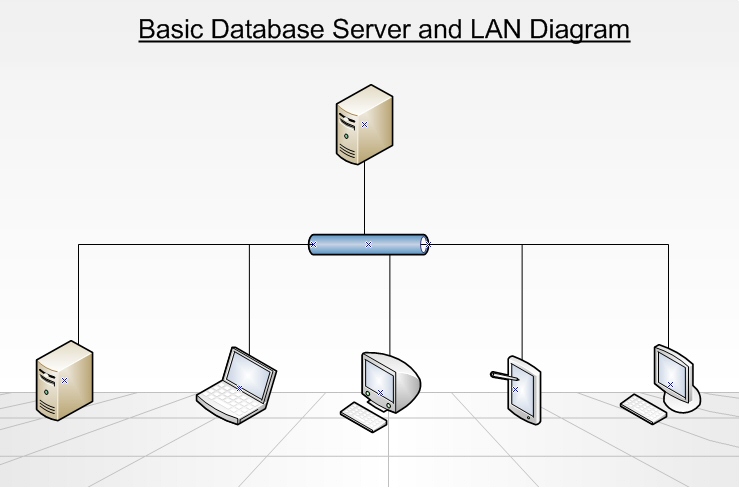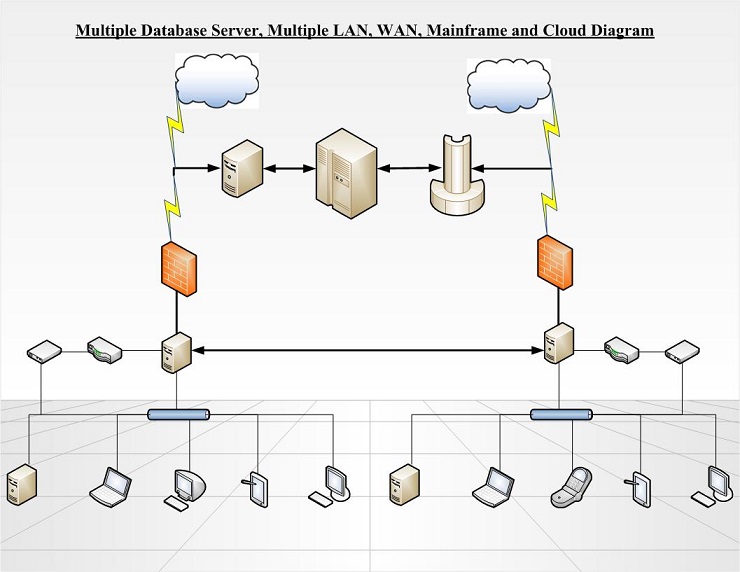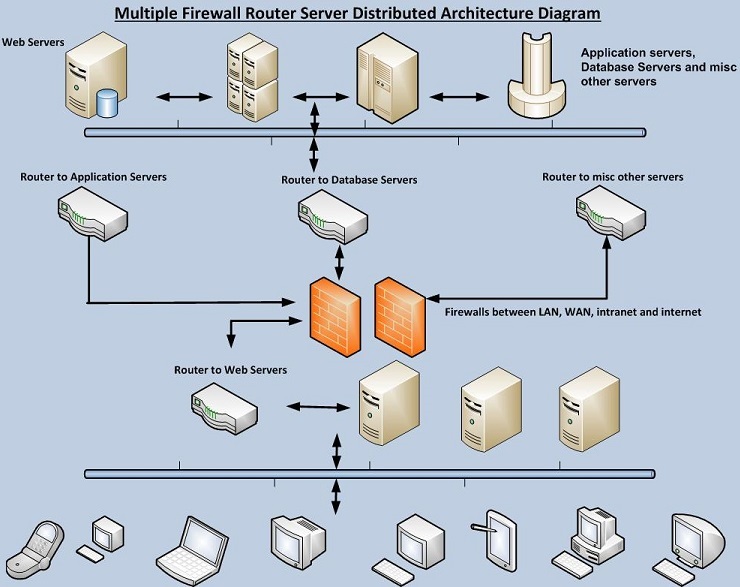|
|
Network / Database Server ArchitectureThe following is Basic Database Server and LAN Diagram in which all client computers on the LAN are connected to a central database server. Typically in Client Server software the client computers have the database software installed on all of them and all client computers add, delete, edit and search for information on the LAN's database server.
The following is a Multiple
Database Server, Multiple LAN and WAN Diagram in which multiple
databases are connected to multiple LAN's (Local Area Networks).
The LAN's database servers then connect to modems, routers and
firewalls. The firewalls
then connect to additional networks outside of the LAN thereby creating
a WAN (Wide Area Network).

The following is a Multiple Database Server, Multiple LAN, WAN Diagram, Main Frame and Cloud Diagram in which multiple databases are connected to multiple LAN's (Local Area Networks). The LAN's database servers then connect to modems, routers and firewalls. The firewalls then connect to additional networks outside of the LAN thereby creating a WAN (Wide Area Network). The next step in complexity for this example is for main frames to be integrated in with the LAN and WAN architecture. All of these devices having connectivity connected to each other makes this type of a network architecture extremely robust. Cloud architecture is then enacted where by all computer can access web servers and various web services for computation and storage of information on web servers.
Security of database servers, application servers and miscellaneous servers of all types may be increase by way of distributed network architecture and the use of firewalls and routers.
|



